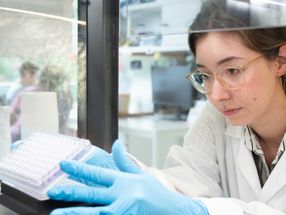CLC bio part of EU project aiming to diagnose genetic disorders using high-throughput sequencing
Tthe EU project, TECHGENE, that focuses on developing Next Generation Sequencing (NGS) diagnostic tools for genetic disorders, announced that CLC bio has been selected as the software partner for this project. The goal of the TECHGENE project is to incorporate the novel massively parallel sequencing technology in routine diagnostic laboratories for the improved diagnosis of genetically heterogeneous diseases. To do so, focus is on a number of model disorders that have shown different degrees of genetic complexity. Some of these model disorders selected are hemoglobinopathies, hereditary breast cancer, paraplegias, ataxias, mental retardation, and sensory disorders including blindness, deafness, and Usher syndrome.
Senior bioinformatics specialist at CLC bio, Patrick Dekker, PhD, states, "Being part of the TECHGENE project provides an excellent opportunity to developa solid solution for diagnostics using amplicon high throughput resequencing in conjuction with some of the most esteemed institutions.We look forward to providing the scientists involved with the ability todiagnose patients based on various chromosomal and gene regions, locate SNPs and Deletion/Insertion polymorphisms, copy number variations, among other things."
Most read news
Topics
Organizations
Other news from the department business & finance
These products might interest you

Get the analytics and lab tech industry in your inbox
By submitting this form you agree that LUMITOS AG will send you the newsletter(s) selected above by email. Your data will not be passed on to third parties. Your data will be stored and processed in accordance with our data protection regulations. LUMITOS may contact you by email for the purpose of advertising or market and opinion surveys. You can revoke your consent at any time without giving reasons to LUMITOS AG, Ernst-Augustin-Str. 2, 12489 Berlin, Germany or by e-mail at revoke@lumitos.com with effect for the future. In addition, each email contains a link to unsubscribe from the corresponding newsletter.

























































